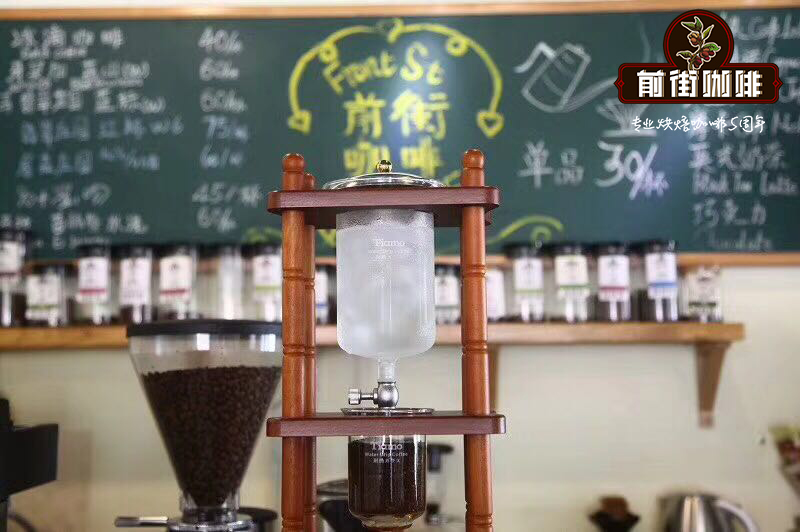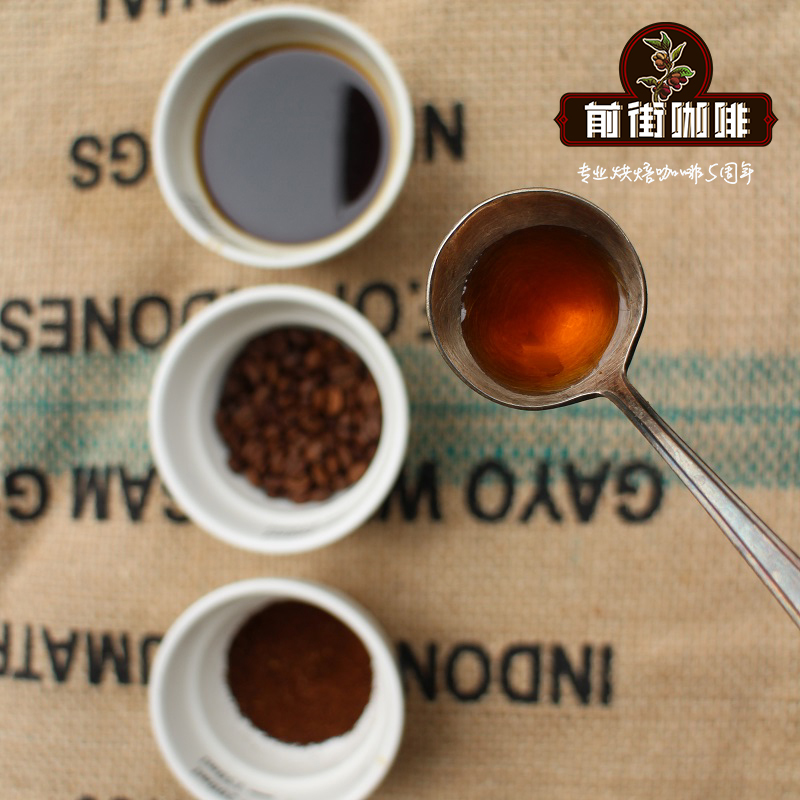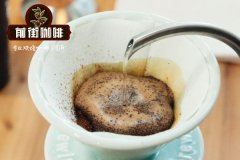Deep-roasted coffee has more caffeine? It turns out that ice drop coffee has more caffeine?

Professional coffee knowledge exchange more coffee bean information please follow the coffee workshop (Wechat official account cafe_style)
Deep-roasted coffee is often interpreted as "thicker" than light roasting, and it is thought that deep-roasted coffee has a higher caffeine content.
Although deep-roasted coffee has a strong flavor, it should not be mistakenly associated with higher caffeine. The strong flavor of bitterness comes from baking, not from caffeine.
Deep-roasted coffee doesn't actually have more caffeine than light-roasted coffee-the two actually have about the same amount of caffeine.
Deep-roasted coffee has no more caffeine than light roasting, but the two have about the same amount of caffeine.
Only a very small amount of caffeine is reduced during the baking process.
A common myth is that there is more caffeine in deep roasting than in light roasting.
However, another common myth is that there is less caffeine in deep roasting than in light roasting. So which one is right?
In fact, some caffeine does dissipate during baking, but the amount is minimal. The difference in caffeine content between light-roasted and deep-roasted coffee has almost nothing to do with roasting. Caffeine content in both light-roasted and deep-roasted coffee can affect your body.
The wrong association of caffeine into flavor is the cause of the myth.
The first myth, "Deep-roasted coffee has more caffeine", is because many people mistakenly associate caffeine content with coffee flavor: "Deep-roasted coffee has a thicker flavor, so it contains more caffeine." However, caffeine does not cause the thick flavor of deep-roasted coffee, but comes from the roasting process.
The myth of less caffeine in shallow roasting is to associate caffeine with the wrong size of coffee beans.
The second myth, "light roasted coffee is high in caffeine," has something to do with the way many people or stores prepare coffee. When roasted, coffee beans swell, and the longer they are roasted, the greater the expansion. Therefore, after roasting the same coffee, the size of deep-roasted beans is larger than that of light-roasted beans.
When weighing the weight of coffee powder before brewing (do not measure with a spoon), the size of light-roasted and deep-roasted coffee beans does not affect the brewing results. However, when people or shopkeepers measure coffee beans with spoons, the cooking results will be affected by the size of coffee beans. Because deep-roasted coffee beans are larger than light roasted beans, when measured by volume rather than weight, there is less coffee powder in deeper roasting. Therefore, the caffeine content of brewed coffee has nothing to do with the roasting degree of beans, but with the amount of powder used when brewing.
Robusta has more caffeine than Arabica, but it doesn't taste good.
There is a significant difference in caffeine content between the two large varieties of coffee, Arabica and Robusta. Arabica, our coffee, is sweeter and more subtle than Robusta's coffee, and contains about 50% less caffeine.
On the contrary, Robusta has a high caffeine content and bitter taste, although the higher caffeine content is not the cause of the bitterness, the bitterness comes from the lower quality of this variety, this kind of coffee is more suitable for use in convenience stores than coffee shops, and there are no coffee shop suppliers will use Robusta beans.
Ice drop coffee has the highest caffeine content, followed by drip coffee and espresso.
Because caffeine doesn't affect flavor, you can't know which way to brew coffee contains the most caffeine just by drinking coffee. For example, for an ounce of espresso and hand brewed coffee, hand brewed coffee has a higher caffeine content than espresso.
Depending on the quality of brewing, the flavor of espresso or hand-brewed coffee may taste stronger than the other, while the caffeine content of ice drops is higher than any kind of coffee, but the thick flavor of ice drops is often difficult to detect because of its smooth taste. The following data references:
A dose of espresso contains 47 to 75 milligrams of caffeine.
8 ounces (about 240 grams) of hand coffee contains 95-200 milligrams of caffeine.
There are many recipes for cooking ice droplets, but they all have high caffeine content because of the high water / powder ratio and long brewing time.
The next time you're looking for coffee with a high caffeine content, don't look at the degree of roasting. If you also want to taste delicious coffee, ice drops or hand-brewed coffee will contain more caffeine.
Important Notice :
前街咖啡 FrontStreet Coffee has moved to new addredd:
FrontStreet Coffee Address: 315,Donghua East Road,GuangZhou
Tel:020 38364473
- Prev

Why is coffee bitter? Is the bitterness really bad? What if the coffee is bitter?
Professional coffee knowledge exchange more coffee bean information Please follow the coffee workshop (Wechat official account cafe_style) Brazilian coffee bitterness has always been an unpleasant term in fine coffee, good coffee should be sweet and delicious, well-balanced taste, maybe a little sour, and do not need to add sugar to make the coffee taste good. But what makes coffee bitter? The bitterness is really so
- Next

What is hand-made coffee? Can I add milk to my hand coffee? Novice beginner hand Coffee tutorial sharing
Professional coffee knowledge exchange more coffee bean information please follow the coffee workshop (Wechat official account cafe_style) what is hand-brewed coffee? Qianjie coffee products are mainly self-baked boutique coffee, in the form of hand-brewed coffee. Hand-brewed coffee, as its name implies, uses hot water to extract coffee through a filter paper filter cup, and the barista controls the flow rate, direction and temperature of the hot water, so
Related
- Beginners will see the "Coffee pull flower" guide!
- What is the difference between ice blog purified milk and ordinary milk coffee?
- Why is the Philippines the largest producer of crops in Liberia?
- For coffee extraction, should the fine powder be retained?
- How does extracted espresso fill pressed powder? How much strength does it take to press the powder?
- How to make jasmine cold extract coffee? Is the jasmine + latte good?
- Will this little toy really make the coffee taste better? How does Lily Drip affect coffee extraction?
- Will the action of slapping the filter cup also affect coffee extraction?
- What's the difference between powder-to-water ratio and powder-to-liquid ratio?
- What is the Ethiopian local species? What does it have to do with Heirloom native species?

